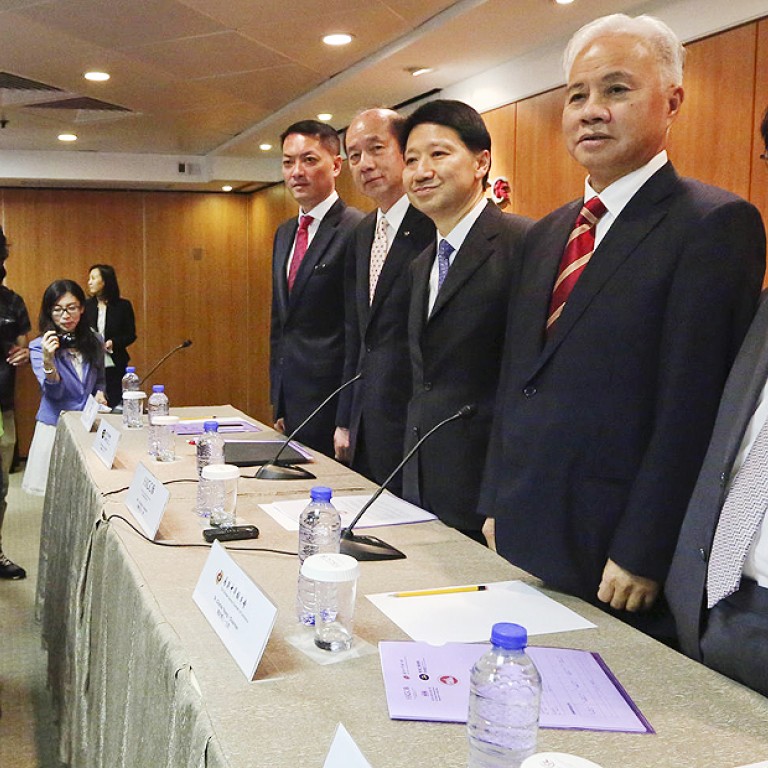
Business chambers liken Occupy Central to Thai protests, say tourism will plummet
The five leading business chambers formed a united front yesterday to oppose Occupy Central, warning that the pro-democracy civil disobedience movement might inflict damage on the city's economy.
The five leading business chambers formed a united front yesterday to oppose Occupy Central, warning that the pro-democracy civil disobedience movement might inflict damage on the city's economy like that caused by the political protests in Thailand.
"When the red shirts and yellow shirts were … occupying certain parts of Bangkok, tourism numbers began to drop quite quickly," General Chamber of Commerce chairman Pang Yiu-kai said.
But the civil disobedience movement rejected comparison with the Thailand protests, saying it was advocating political reform, not trying to overthrow a government.
The latest move by pro-establishment forces to counter Occupy's plan to blockade roads in Central if Beijing fails to offer a satisfactory electoral reform plan, came after the chamber leaders met the National People's Congress chairman Zhang Dejiang in Shenzhen last week.
Pang, the chief executive of Hongkong Land, which has interests in Central, said tourists were concerned about safety and it was "almost certain" Occupy Central's action would deter them from visiting.
It could also affect retailers, restaurants, transport, money changers and the city's competitiveness, he said. Traffic problems could spread to Kowloon and the New Territories.
Pang was speaking at a press conference held by his chamber, the Chinese General Chamber of Commerce, Federation of Hong Kong Industries, the Chinese Manufacturers' Association and the Real Estate Developers Association.
Occupy Central co-organiser Dr Chan Kin-man described the remarks as "an exaggerated comparison aiming to create fear". "The Thai protesters were trying to overthrow the regime while we are only calling for political reform. I can't see there are citizens hoping to oust the government via violence," the Chinese University sociologist said.
The chamber leaders brushed off rumours their stand was related to the meeting with Zhang, who had reiterated Beijing's stance against Occupy Central.
They also said they did not force members or those firms' employees to sign an anti-Occupy petition initiated by the Alliance for Peace and Democracy.
Chinese Manufacturers' Association vice-president Jimmy Ng Wing-ka said the chambers had not conducted any study to assess the possible damage from Occupy Central, as many scholars had already done such work.
But he disagreed they had exaggerated the consequences, citing the Chater Road sit-in.
"A small-scale rehearsal for Occupy Central has already put traffic in a mess, " he said. "How could a protest full of cars and people leave way for an ambulance to pass through?"
Separately, retired education minister Michael Suen Ming-yeung said he would have signed the anti-Occupy petition had he still been in government. "At the end of the day, everyone has to make a concession," Suen said.
Health minister Ko Wing-man, who did sign, said there was no pressure on civil servants to follow suit.

